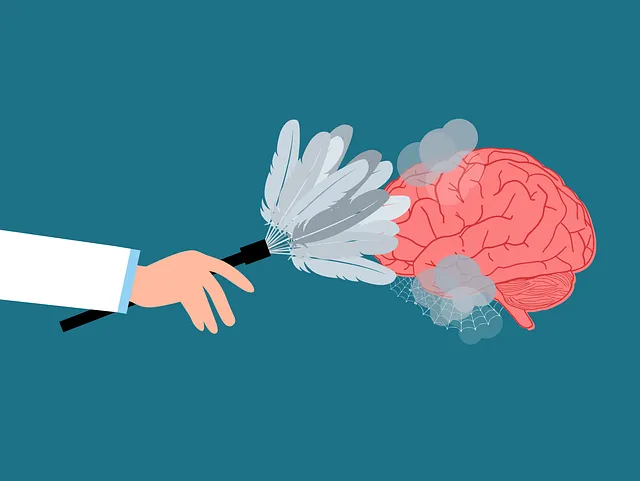Mental health policy advocacy, led by centers like the Kaiser Permanente Mental Health Access Center in Littleton, is crucial for improving access to quality care. By analyzing policies, engaging stakeholders, and employing evidence-based practices, advocates drive change. Cultural sensitivity ensures diverse communities receive tailored, competent mental healthcare. Kaiser Permanente's holistic models integrate social skills training and community engagement, empowering individuals for long-term recovery and reducing stigma. Effective advocacy requires data-driven solutions, stakeholder collaboration, and targeted interventions to navigate policy complexities, focusing on accessibility, affordability, and cultural sensitivity.
Mental health policy advocacy is a powerful tool to drive change and improve individual well-being. This article delves into the critical analysis of mental health policies, exploring their impact on society. We examine the role of organizations like Kaiser Permanente in shaping access to mental healthcare, specifically at their Mental Health Access Centers in Littleton. By understanding policy foundations, we equip advocates with strategies for effective analysis and advocacy, ultimately enhancing mental health support and resources available to all.
- Understanding Mental Health Policy: A Foundation for Advocacy
- The Role of Organizations Like Kaiser Permanente in Shaping Access to Mental Healthcare
- Strategies and Steps for Effective Mental Health Policy Analysis and Advocacy
Understanding Mental Health Policy: A Foundation for Advocacy

Mental health policy forms the cornerstone for advocating and improving access to quality care. Understanding the intricate web of regulations, guidelines, and initiatives is vital for any advocate aiming to bring about positive change in mental healthcare. The Kaiser Permanente Mental Health Access Center in Littleton serves as a beacon, offering comprehensive resources and guidance for navigating this complex landscape.
By examining existing policies, advocates can identify gaps and advocate for evidence-based practices that promote emotional well-being. This involves staying abreast of the latest research, engaging with policymakers, and utilizing tools like mental wellness journaling exercises to track progress and share personal stories, which can be powerful catalysts for change. Additionally, cultural sensitivity in mental healthcare practice is paramount, ensuring diverse populations have access to culturally competent services tailored to their unique needs.
The Role of Organizations Like Kaiser Permanente in Shaping Access to Mental Healthcare

Kaiser Permanente, as a leading healthcare provider, plays a pivotal role in shaping access to mental health services, particularly in centers like its Littleton location. Through comprehensive care models, they offer more than just clinical treatment; they foster environments that promote emotional well-being and reduce the stigma associated with mental illness. By integrating social skills training and emotional intelligence programs into their services, Kaiser Permanente empowers individuals to manage their mental health effectively.
This holistic approach extends beyond traditional therapy, encouraging community engagement and support networks that are essential for long-term recovery. Their efforts in mental illness stigma reduction contribute significantly to creating a more inclusive society where individuals feel comfortable seeking help without fear of judgment. This strategic initiative aligns with the broader advocacy goals of ensuring equitable access to quality mental healthcare for all.
Strategies and Steps for Effective Mental Health Policy Analysis and Advocacy

Mental health policy analysis and advocacy require a multifaceted approach to drive meaningful change. The first step involves gathering comprehensive data on the current state of mental healthcare services, identifying gaps, and understanding the specific needs of diverse communities. Engaging with stakeholders, including mental health professionals, patients, and community organizations, is crucial for building empathy and gaining insights into the challenges faced in accessing quality care, such as those offered at the Kaiser Permanente Mental Health Access Center Littleton.
Effective advocacy strategies include leveraging research to inform policy decisions, proposing evidence-based solutions, and fostering collaborative partnerships. Developing coping skills programs and risk management plans for mental health professionals can enhance their resilience and improve patient outcomes. By combining empirical data, stakeholder engagement, and tailored interventions, advocates can effectively navigate complex policy landscapes, ensuring that mental health policies prioritize access, affordability, and cultural sensitivity.
Mental health policy analysis and advocacy are vital components of ensuring equitable access to quality care, as exemplified by organizations like Kaiser Permanente’s Mental Health Access Center in Littleton. By understanding the foundational principles of mental health policy and employing strategic steps for analysis and advocacy, we can navigate complex systems to improve outcomes for individuals facing mental health challenges. This approach fosters a more inclusive and supportive society where mental wellness is prioritized and accessible to all.






